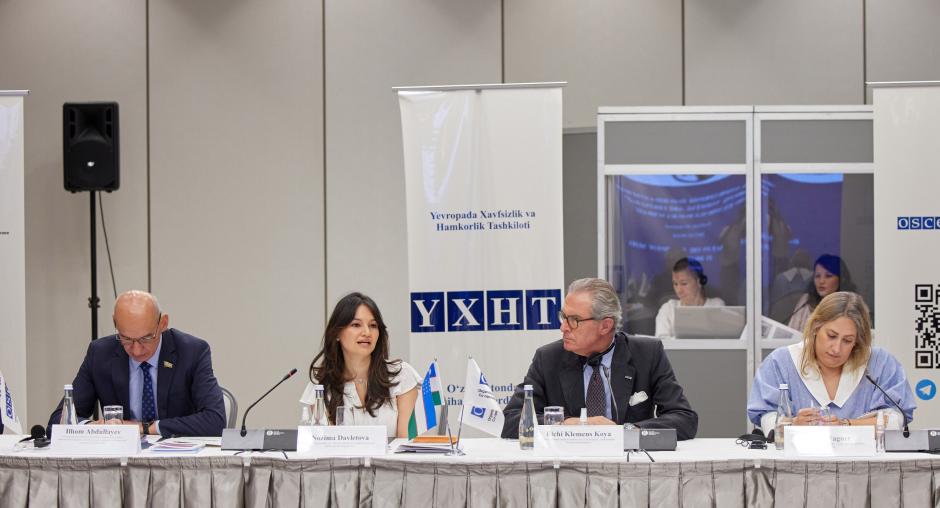OSCE spotlights Artificial Intelligence (AI) and Freedom of the Media

On 10 July, in Tashkent, the OSCE Project Co-ordinator in Uzbekistan (PCUz), together with the Public Fund to Support and Develop National Media in Uzbekistan and the Office of the OSCE Representative on Freedom of the Media (RFoM), held a roundtable discussion on Freedom of the Media in the Digital Age.
Forty participants, including representatives from the Legislative Chamber of the Oliy Majlis of the Republic of Uzbekistan, ministries and government agencies, journalists, representatives from the tech industry and civil society organizations, discussed the changes taking place in today's media landscape, opportunities and limitations of the media in the digital sphere, the use of Artificial Intelligence (AI) in journalism and how it affects freedom of expression. In addition, participants shared their experiences on the use of AI in journalism and addressed trends in regulating harmful content in the OSCE region. They also presented an overview of policy recommendations to governments about the use of AI and its main consequences on media freedom.
At the opening ceremony, Ambassador Clemens Koja, Acting OSCE Project Coordinator in Uzbekistan, emphasized that "It is only through close co-operation at both national and international levels, as well as among various stakeholders, including civil society and the tech industry, that a responsible and human rights-friendly use of AI can be ensured."
Nozima Davletova, Chairperson of the Board of Trustees, Public Fund to Support and Develop National Media in Uzbekistan highlighted that “over the past seven years there has been a tremendous advance in technology. These developments have brought new opportunities as well as new challenges and risks. Therefore, we should understand how to make access to information safe, equal and impartial. In this environment, it is essential that we not only discuss the difficulties, but also propose solutions."
The Senior Adviser of the Office of the OSCE RFoM, Deniz Wagner, noted that “today we find ourselves at a crossroads. In this ever-evolving digital information ecosystem, we need to ask ourselves, what do we want our online information ecosystem to look like? What role should AI play, and how can we develop a human rights based framework that serves the public interest? These should be the central questions for developing any regulation. A comprehensive and inclusive approach, focusing on governing processes rather than specific content can bring positive solutions.”
This roundtable discussion was organised within the framework of the PCUz UB project “Promoting Rule of Law, Human Rights and Media Freedom”.
